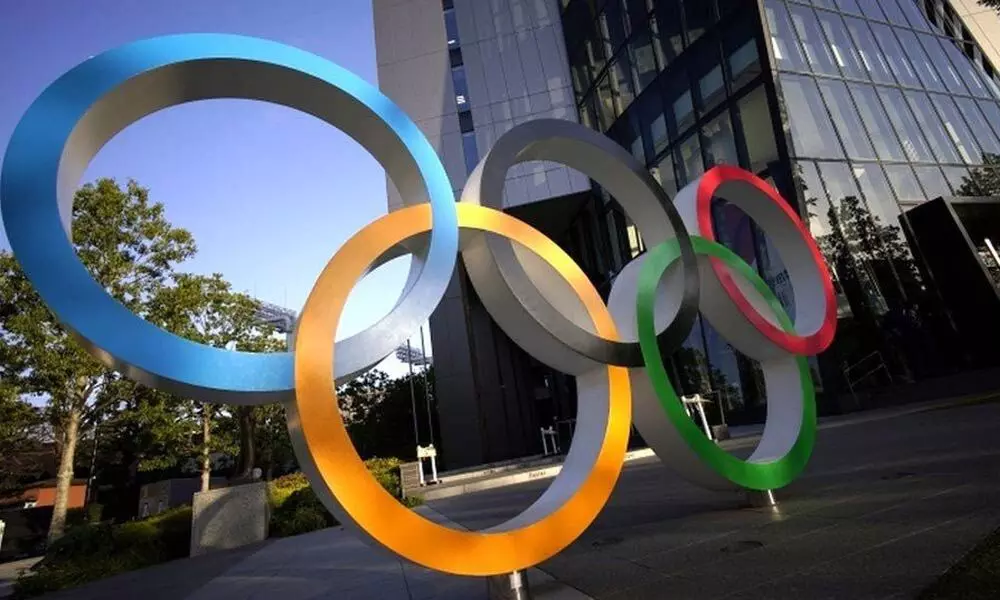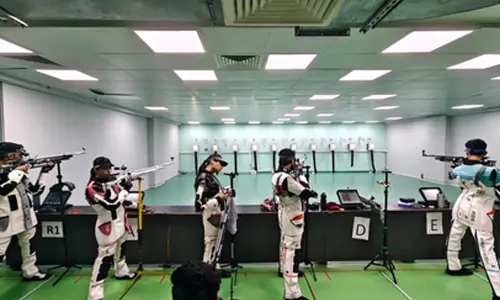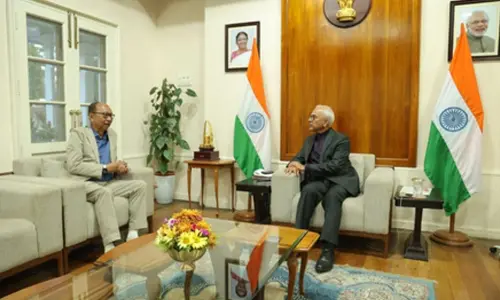Continuing challenges for Tokyo Olympics

Continuing challenges for Tokyo Olympics
North Korea has decided to drop out of the forthcoming Tokyo Olympics due to concerns its athletes could contract coronavirus
North Korea has decided to drop out of the forthcoming Tokyo Olympics due to concerns its athletes could contract coronavirus. It became the first country to withdraw from the quadrennial event. Japan said it hopes many countries will join the Olympics and promised ample anti-virus measures. The Games are currently scheduled to take place from July 23 to August 8. The Paralympics will follow, from August 24 to September 5. Tokyo Olympic organisers grappled with the cancellation of test events for several pool sports just days after they were restarted, as the Covid-19 pandemic continued to disrupt preparations for the start of the Summer Games in July.
The International Swimming Federation (FINA) has cancelled Olympic qualifiers for diving and artistic swimming that were to double up as test events this month and next. Separately, a water polo test event involving only Japanese athletes, that was due to take place at the weekend, will be cancelled because overseas officials are unable to come to Japan due to strict Covid-19 countermeasures. The news is a blow for organisers just days after they restarted test events, which are an important dry run to confirm the Games' operational capabilities, for the first time in more than a year.
It also highlights the mammoth task of planning for the world's biggest sporting event at a time when Japan is struggling to combat a fourth wave of Covid-19 infections that has begun to gather. Organisers were initially planning 18 test events in April and May, starting with wheelchair rugby April 3-4. But FINA has cancelled its Olympic qualifiers in Tokyo, which were also to be test events, for diving scheduled for April 18-23 and artistic swimming May 1-4. FINA has also cancelled a non-test event, the Olympic marathon swim qualifier in the southern Japanese city of Fukuoka in late May, its website shows. Meanwhile, an Olympic preparatory event was cancelled after Covid-19 infections broke out at a training camp for the Japanese water polo team - with seven people testing positive for the virus.
Meanwhile, the torch relay that started on March 25 from northeastern Japan is circulating the country and is to reach Tokyo on July 23. It involves about 10,000 runners. The Tokyo Summer Olympics has survived being postponed, a mountain of scandal and bad publicity. Now comes the real challenge: pulling off the world's biggest sporting event safely in the middle of a pandemic. When the games kick off on July 23, Covid-19 will still be a global reality. Even with the decision to exclude foreign spectators, more than 60,000 athletes, coaches, national team staff, media and other essential workers will converge on Tokyo from more than 200 countries — each with different rates of transmission, vaccination and viral variants.
Based on the number of people arriving and the prevalence of the disease around the globe, the Olympics absolutely could become a super-spreading event that leads to quite a number of infections, as well as spreading internationally as people return home. If there is an outbreak in the Olympics village, not only could the event become the site of a sizable outbreak that spreads into Japan, it could become the birthplace of novel variants gathered from around the world.











